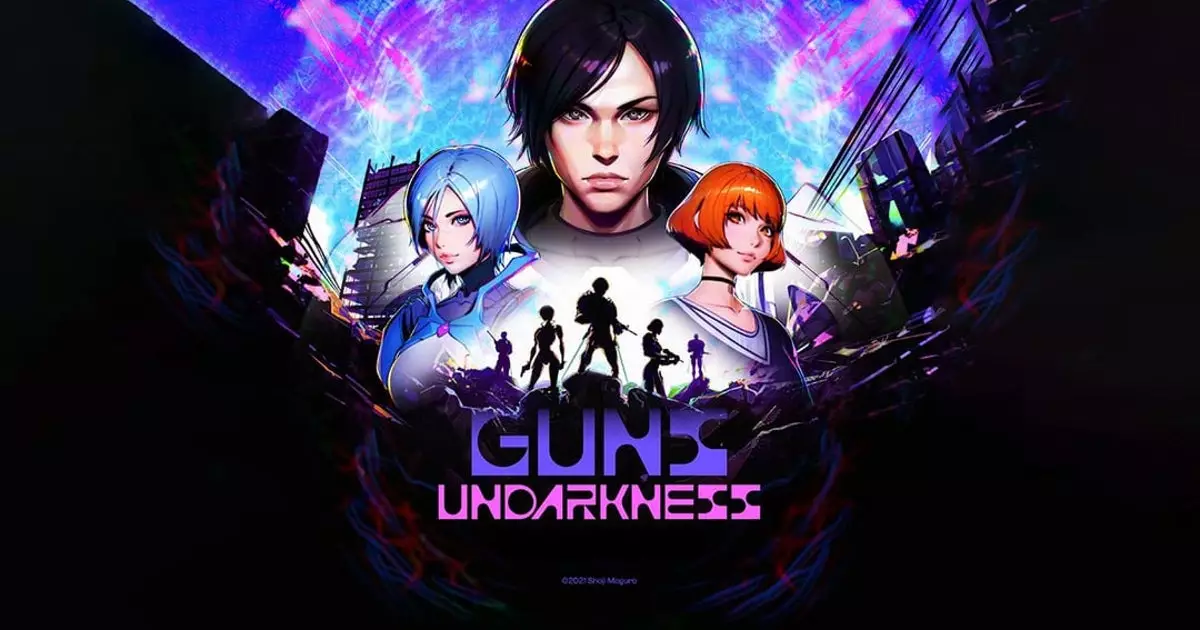In the overflowing landscape of role-playing games, there emerges a title that captivates the imagination not merely with its aesthetic possibilities but also with the rich narrative foundation on which it stands: “Guns Undarkness.” Developed by the renowned composer Shoji Meguro, known primarily for his groundbreaking work in the Persona and Shin Megami Tensei franchises, this new turn-based sci-fi RPG promises an exploration of complex themes against a backdrop marked by destruction and social division. Collaborating with the talented Ilya Kuvshinov—whose work in Ghost in the Shell: SAC 2045 has been widely acclaimed—and Lotus Juice, a rapper whose beats have invigorated various entries in the Persona series, the allure of this game extends beyond its intriguing premise and into its sound and visual design.
Set in 2045, “Guns Undarkness” unfolds in a world ravaged by the aftermath of a catastrophic nuclear war, a scenario that forms a potent metaphor for contemporary societal issues. As the game’s synopsis indicates, it tackles the consequences of an era where technological advancements exacerbate the rift between social classes—the “Haves” and the “Have Nots.” A narrative thread woven with the concept of a “Great Reset,” portrayed here as a movement by disenfranchised masses, positions itself deeply within social commentary, reminiscent of real-world initiatives aimed at economic recovery or, according to some critics, corporate manipulation.
The duality of this thematic approach raises eyebrows, particularly in challenging times where narratives of upheaval resonate differently across diverse audiences. Merely invoking such a loaded term as “Great Reset” carries significant implications and suggests a layer of depth that could either result in a profound commentary on social justice or veer towards contentious allegory. It is essential for the game to navigate this territory carefully, as audiences are increasingly sensitive to themes surrounding economic inequity and ideological manipulation.
Moving beyond its thematic substance, “Guns Undarkness” also introduces a combat system that integrates strategy with tactical decision-making. Players control a squad of four characters, including the main protagonist, initiating battles through stealth mechanics akin to those in tactical shooters like Rainbow Six. However, what sets it apart is the turn-based approach once engagement begins, allowing for deeper strategy rather than the fast-paced chaos typical of many modern titles.
The combat system features standard attacks that do not deplete resources and powerful skills that do, necessitating a careful balance between aggressive and defensive play. Significantly, players can exploit cover mechanics creatively; engaging in cover not only adds layers to tactical positioning but also allows players to unleash more potent attacks without the usual cost. Such mechanics are indicative of a thoughtful design philosophy, fostering a synergistic gameplay experience where adaptability and strategic thinking meld seamlessly.
Additionally, the inclusion of buffs and debuffs through weaponry, which upgrade independently from character progression, adds complexity to the decision-making process in combat. A system reminiscent of Persona’s relationship dynamics serves to enhance character bonds, providing a layer of emotional depth often absent in other RPGs.
With its release anticipated later this year, “Guns Undarkness” has presented itself as a unique contender in the crowded RPG market. The collaborative efforts behind the game suggest a dedication to not only entertaining gameplay but also to engaging storytelling that resonates with contemporary issues. As the players prepare to embark on a journey through this fractured yet technologically advanced landscape, both the aesthetic and narrative flourishes remain to be fully realized.
It will be interesting to observe how “Guns Undarkness” evolves from its rich conceptual origins into a comprehensive gaming experience that captivates and challenges its audience in equal measure. As we await the unveiling of its world, one thing stands clear: the ambition behind this title positions it as more than just another RPG; it aspires to be a reflection of our times, a contemplation on what it means to be human in an age of division and despair.

